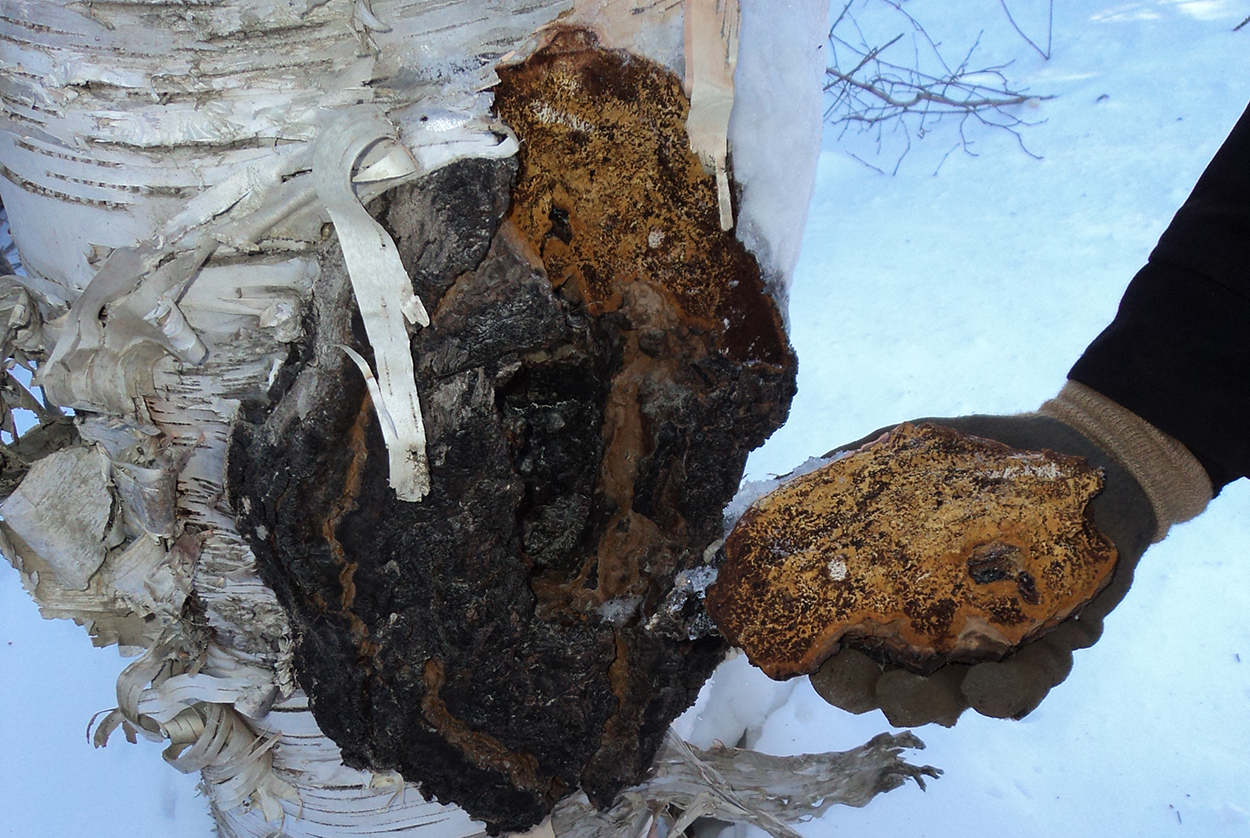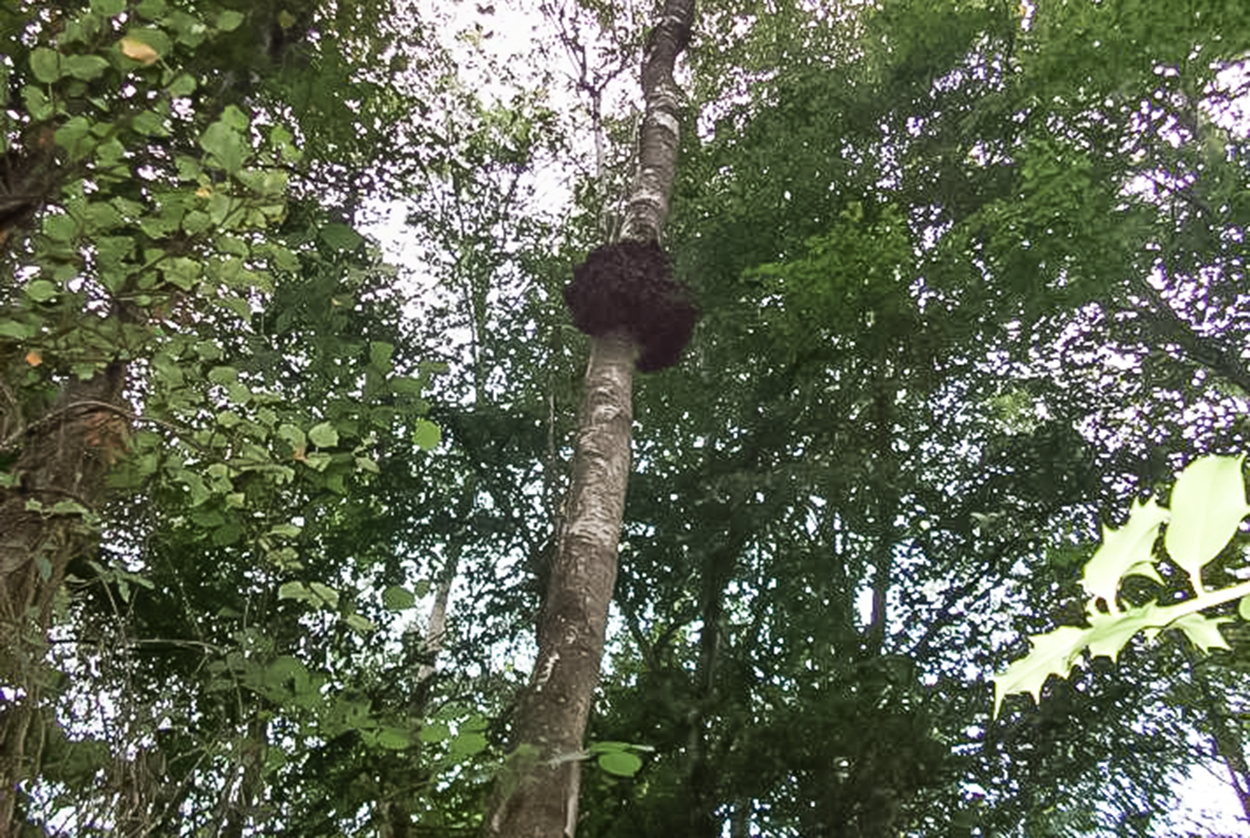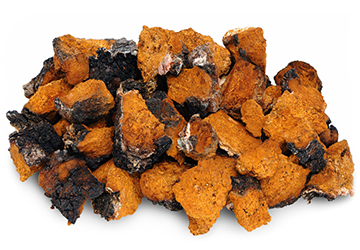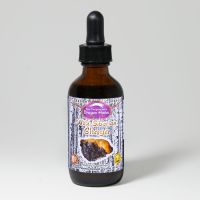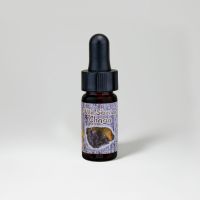This is a demo store. No orders will be fulfilled.
Call Our Herbalists
Herbal Consultations
Wild Siberian Chaga
- Genuine wild Siberian Chaga
- Sustainably collected in Siberia (Russia) from old birch forests
- All Chaga used to make this extract are at least 10 years old and all are wild-collected
- Supports immune functions
- Supports liver health
- Supports brain health
- Supports healthy aging
Product Description
Chaga (Inonotus obliquus) is a highly prized tonic fungus (mushroom), long used in traditional Siberian, Korean, Chinese, North European and Scandinavian herbalism. It is found growing wild in old forests throughout the colder regions of Northern Asia, Northern Europe and North America. The best Chaga is believed to come from subarctic birch forests in Siberia. Dragon Herbs premium Wild Siberian Chaga is collected from remote near-arctic Siberian forests. In Russia, after ten to fifteen years of parasitism on birch trunks, the black shapeless overgrowth of fungus acquires the status of “Chaga.” At 20 years Chaga is considered herbally fully mature. The vast majority of “Chaga” used to make formulations sold in the United States use “Chaga” that has not achieved maturity, and is therefore not truly “Chaga.” In fact, there are “Chaga” farms in tropical countries such as Myanmar that produce “Chaga” in just 3 or 4 years, but this “Chaga” is not even close to the potency of Siberian Chaga that has reached full maturity after 20 years of wild arctic growth.
Why Siberian Chaga? Like ALL major tonic herbs, the source of the raw material (the herb) should be selected based on both tradition and modern chemical analysis to assure the best product. Dragon Herbs is a Di Tao company, meaning we use only raw materials from the authentic source to make our herbal products. The source of the raw material for Dragon Herbs Wild Siberian Chaga is a remote region of Siberia in northern Russia. Chaga grows in many places, but chemical analysis has definitively demonstrated that genuine wild Siberian Chaga is the most potent form of Chaga. Wild Siberian Chaga has special properties that must be sensitively extracted. Siberian Chaga has hundreds of active constituents that must be protected and delivered to your digestive system intact and undamaged.
Chaga has traditionally been consumed as a hot tea, and the benefits associated with Chaga are based primarily (almost exclusively) on the cooked decoction or extract of Chaga. So mild cooking is traditionally considered appropriate for Chaga. Cooking produces additional metabolites that are believed to provide biological activity. Dragon Herbs Wild Siberian Chaga is a concentrated extract, produced by a state-of-the-art moderate-temperature full-spectrum extraction technology. Special highly sensitive technologies were used during the extraction process to assure full extraction of bioactive components. Both water and ethanol (alcohol) are used in the extraction, and as a result, all bioactive components are present. The ethanol and water extracts, both independently and together, revealed “remarkable potential for scavenging” free radicals, while Chaga extracts made with synthetic solvents did not show this activity.
Ingredients: Wild Russian Siberian Chaga Mushroom powdered extract (water and alcohol extraction), 32% Chaga Polysaccharides by analysis
A True Treasure from Siberia
Chaga (Inonotus obliquus) is a highly prized tonic fungus (mushroom), long used in traditional Siberian, Korean, Chinese, north European and Scandinavian herbalism. It is found growing wild in old forests throughout the colder regions of Northern Asia and Northern Europe. The ultimate Chaga is believed to come from subarctic Siberian birch forests. Dragon Herbs premium Chaga is collected from remote sub-arctic Siberian forests.
Asian herbalists believe that Siberian Chaga preserves youthfulness, promotes health, and promotes longevity. Because of its potent protective qualities and high degree of safety, it is relegated as a “superior herb.” It is categorized as a Qi tonic, like Reishi mushroom. It is also considered to be a superb Kidney tonic. Russian and Scandinavian scientists have done the most scientific research on this powerful herb in recent years. Siberian Chaga is a very powerful antioxidant. Studies indicate it is a much more potent free radical scavenger than almost all other popular dietary antioxidants, including blueberries and acai. Chaga may be used as a Shen tonic as well, and as an immune modulating (strengthening, balancing, supportive and regulating) tonic of the highest order.
Siberian Chaga contains a range of important active constituents including polysaccharides, phenolic compounds, lanostane triterpenoids and melanin, a pigment that is present and needed throughout the human body, with a wide range of health benefits. Research on Siberian Chaga has demonstrated potent immune supporting actions. Upon ingestion, a range of secondary metabolites are produced, many of which are highly active as potent immune modulators. Chaga is a rich source of 1-3 β–glucans, polysaccharides that are quintessential nutrients for the immune system. These polysaccharides have strong immune balancing properties, enhancing the body’s ability to produce natural killer (NK) cells. At the cellular level, Chaga has been shown to support the response to oxidative molecules that may negatively impact human DNA if not quenched.
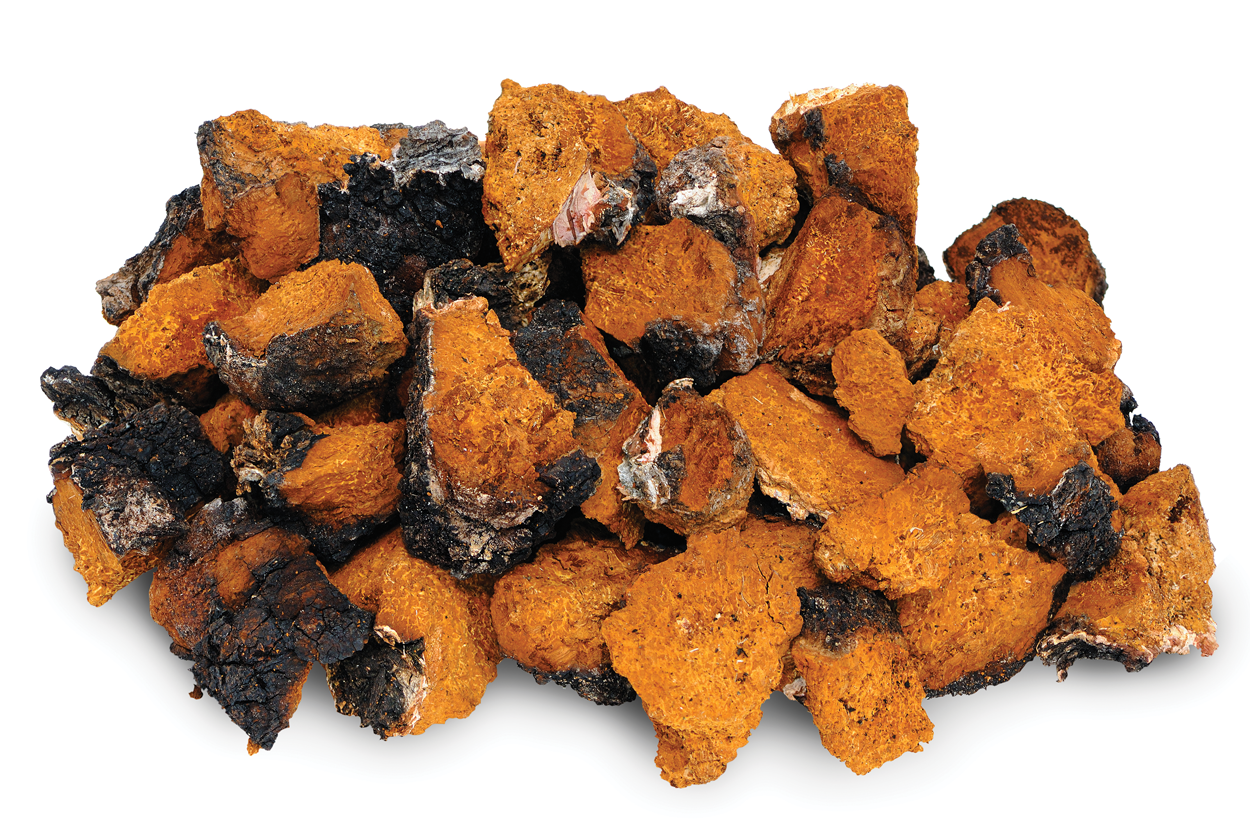
Chaga produces large amounts of high molecular weight phenolic pigments that have been categorized as melanins. This melanin “complex” is released to the surface of Chaga. Melanin is a potent antioxidant pigment that is present and needed throughout the human body, and has a wide range of health benefits. It has been demonstrated that this Chaga melanin has strong genoprotective(DNA/gene protective) effects.
The antioxidant activity of the hot water extract of Chaga has been precisely compared with those of other tonic fungi (Agaricus blazei Mycelia, Ganoderma lucidum and Phellinus linteus) by Japanese researchers, showing that Chaga has the strongest antioxidant activity among the fungi examined in terms of both superoxide and hydroxyl radicals scavenging activities.
Siberian Chaga is non–toxic. Chaga’s safety has been well established, and it may be used as a daily tonic herb. Dragon Herbs Wild Siberian Chaga is extracted (concentrated) by a special controlled–temperature, full spectrum extraction technology. Both water and alcohol are used in the extraction and as a result, all bioactive components of the Chaga are present in Dragon Herbs Wild Siberian Chagapowdered extract.
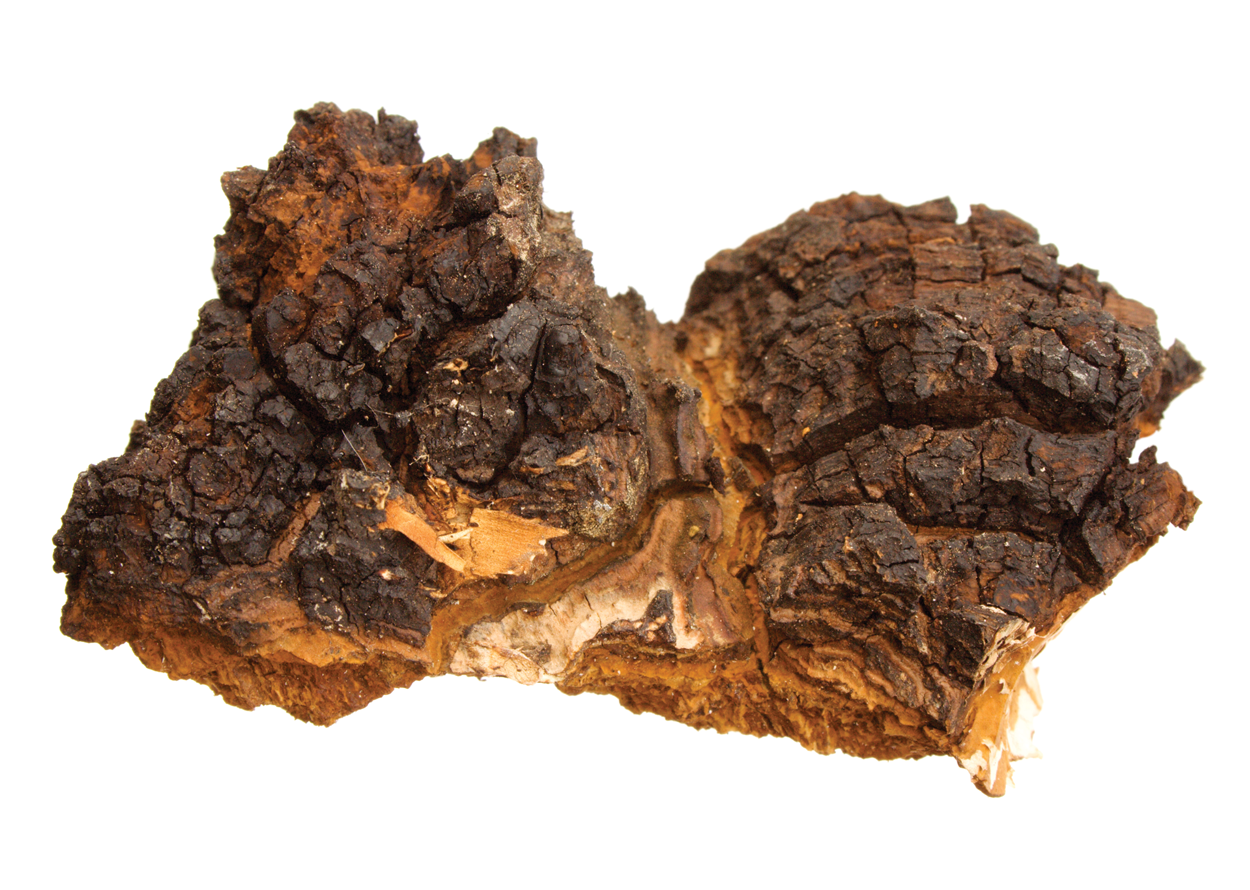
Researchers have recently reported in an international research journal (2011) at least one mechanism by which Chaga modulates immune responses is through secretion of Th1/Th2 cytokines (bioactive chemicals) in immune cells, and that Chaga regulates antigen–specific antibody production. This modulatory effect is responsible for Chaga’s “double–direction” adaptogenic effect on the immune response. This activity is very similar to the same activities long noted in Reishi mushroom (Ganoderma). Because of its double direction adaptogenic activity, Chaga is suitable to all healthy normal individuals seeking a world class tonic to support a wide range of life functions.
Chaga, like several other important tonic herbs, is a rich source of the trace element zinc. Zinc is an essential nutrient required for cell growth, differentiation and survival. Its deficiency may result in immunodeficiency and many other health problems. Zinc is a critically important constituent of SOD, our most important innate antioxidant.
Chaga’s safety has been well established. It is non–toxic. It may be used in moderate amounts as a daily tonic. Chaga has been widely used in Japan, and the Japanese government carefully monitors adverse reaction reports. As of May 2011, in spite of the widespread popular use of this herb, there have been no adverse reaction reports in Japan.
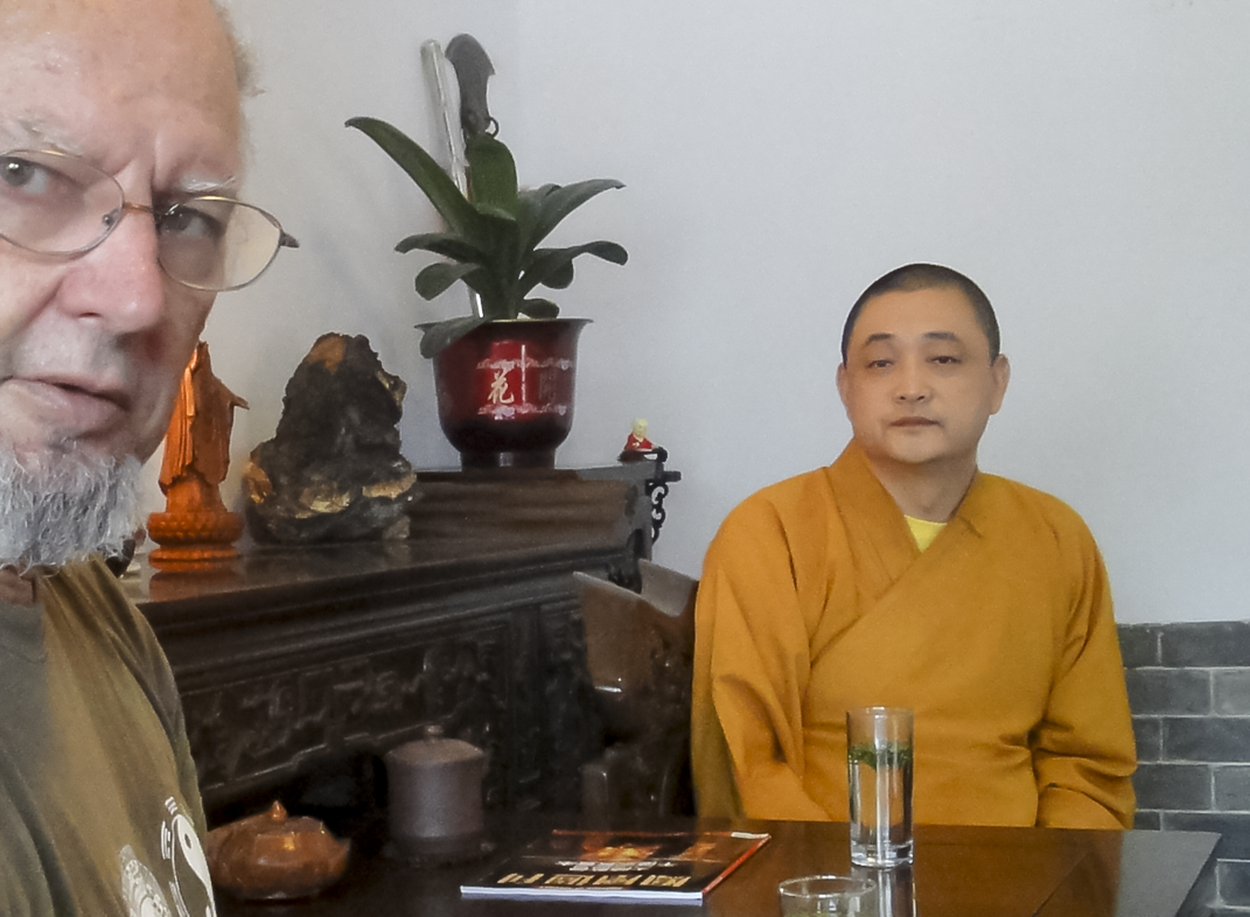
Ron with Buddhist Shi Yan Lin at the Shaolin Temple and his Chaga mushroom altar.
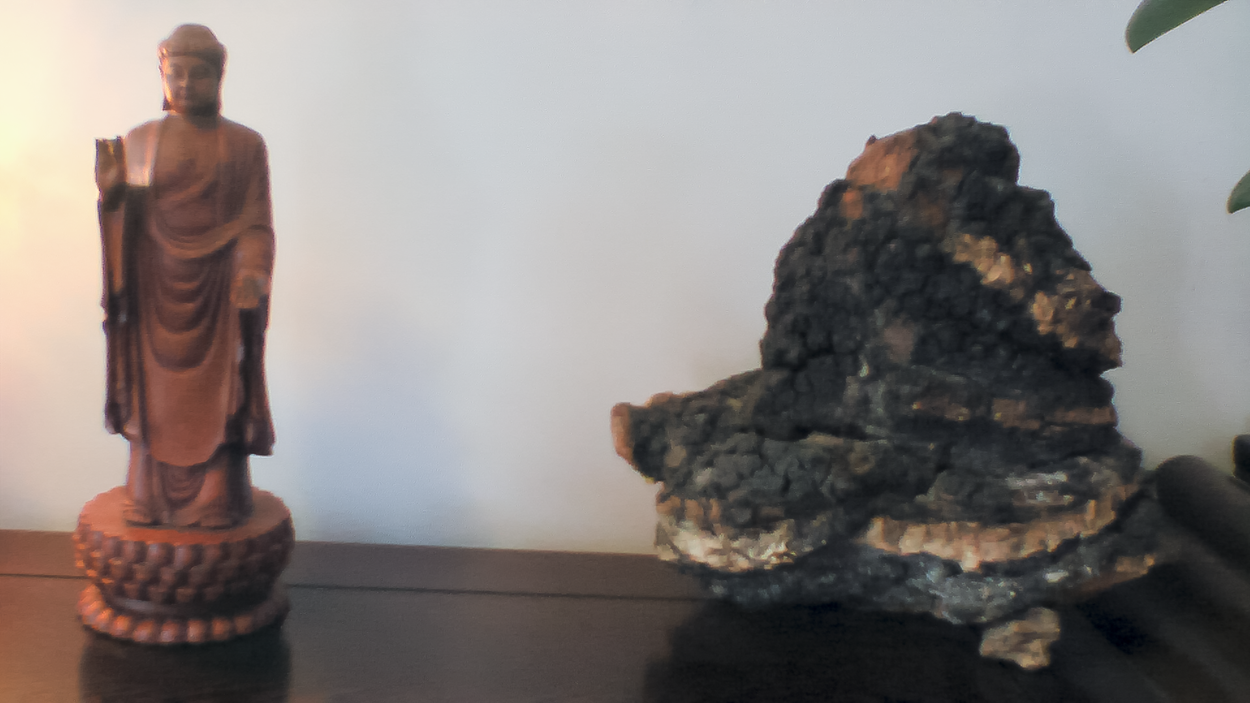 Chaga mushroom altar at the Shaolin Temple.
Chaga mushroom altar at the Shaolin Temple.
Why Siberian Chaga?
Like ALL major tonic herbs, the source of the raw material (the herb) must be selected based on both tradition and modern chemical analysis to assure the best product. Dragon Herbs is a Di Tao company, meaning we use only raw materials from the authentic source to make our herbal products. The source of the raw material for Dragon Herbs Wild Siberian Chaga is a remote region of Siberia in northern Russia. Chaga grows in many places, but chemical analysis has definitively demonstrated that genuine Siberian Chaga is the most potent form of Chaga.
Chaga is comprised of two visually distinguishable parts: black (mainly outside) and orange–brown (mainly inside). These are generally classified as the sclerotium and fruiting body, respectively. However, Chaga does not produce a “fruiting body” like that of Reishi mushroom. Inonotus obliquus is a “white rot fungus” with an irregular shape. The “black” (very dark brown) skin is rich in melanin. In Russia, after 10—15 years of parasitism on trunks, mostly of birch, this black shapeless overgrowth of fungus (“sclerotial conk”) acquires the status of “Chaga.” At 20 years Chaga is considered herbally fully mature. The vast majority of Chaga used to make formulations sold in the United States use Chaga that has not achieved maturity. In fact, there are Chagafarms in tropical countries that produce Chaga in just 3 or 4 years, but this “Chaga” is not even close to the potency of Siberian Chaga that has reached full maturity after 20 years of wild, arctic growth.
Chaga extract is much more concentrated, bioavailable and functional than consuming Chaga powder that has not been concentrated. This is because the fibers of Chaga are “woody” and difficult for humans to digest. Extraction removes the woody fiber, leaving the active constituents intact and bioavailable.
Siberian Chaga has special properties that must be sensitively extracted. Siberian Chaga has hundreds of active constituents that must be protected and delivered to your digestive system and intact and undamaged. Many of these raw constituents are then metabolized, producing new active “metabolites” that are absorbed into the blood stream.
To achieve optimum benefit from Chaga, the relative quantities of various constituents in the extract are of great significance. It took a great deal of special work to perfect this Chaga extraction. We spent several years testing various extraction procedures before going public with this important product. At our state–of–the–art factory, we did many test extractions to get the maximum (optimum) extraction. We knew that Chaga has both alcohol and water soluble components. The precise concentration of alcohol used to extract the Chaga had a fundamental influence on the ultimate potency of our Chaga extract. Just tweaking the percentage of alcohol used by as little as 5% changed the extraction quantities of important components by as much as 25%!
It turned out that temperature, extraction time, and other more technical issues all played a BIG role in how the product would turn out. We feel confident that Dragon Herbs Wild Siberian Chaga contains the highest and most optimal levels of active components possible according to all research currently available on Chaga.
Chaga is a tonic herbal treasure. It should be a component of every serious tonic herbal program.
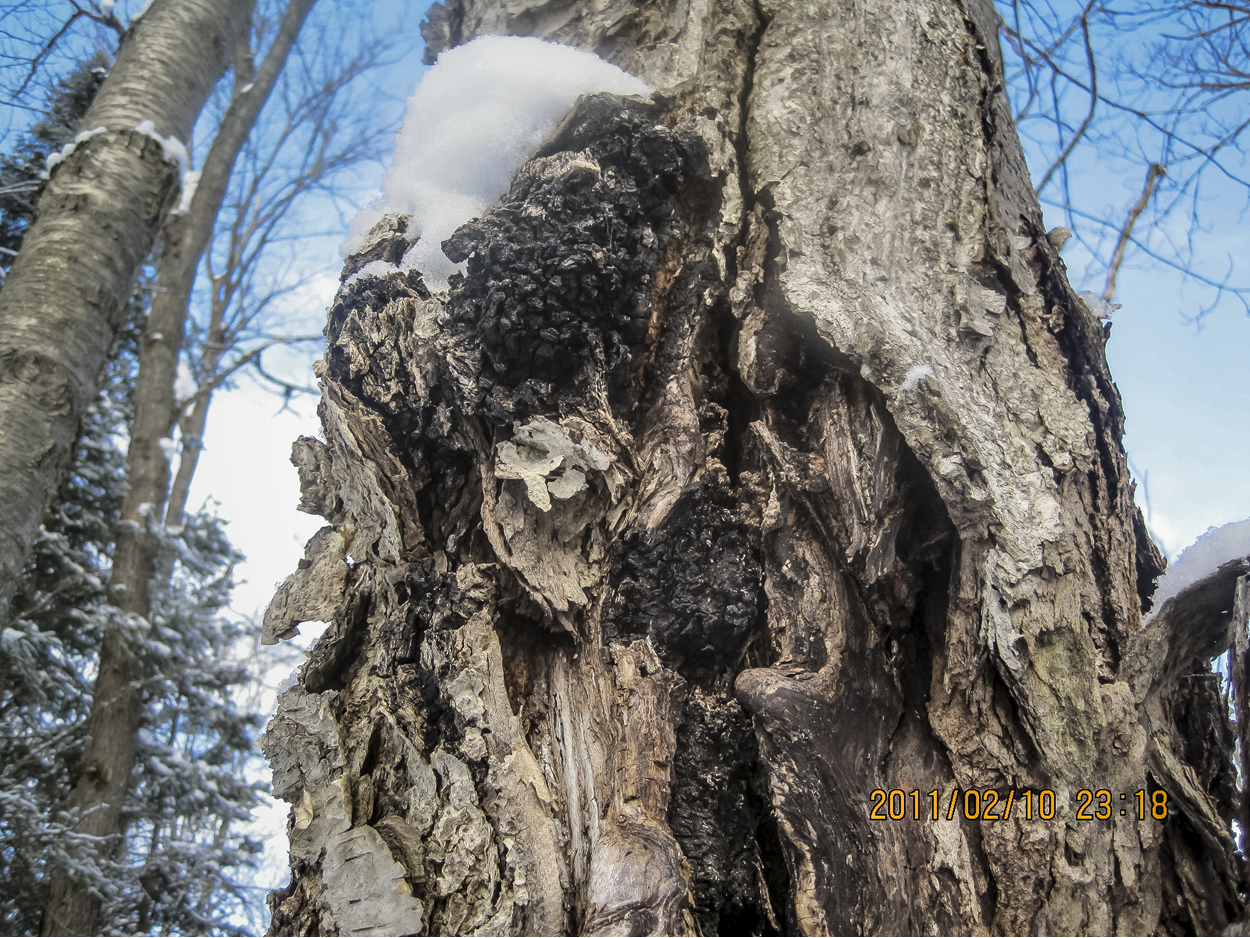
Why Choose Dragon Herbs Wild Siberian Chaga Over Other Brands?
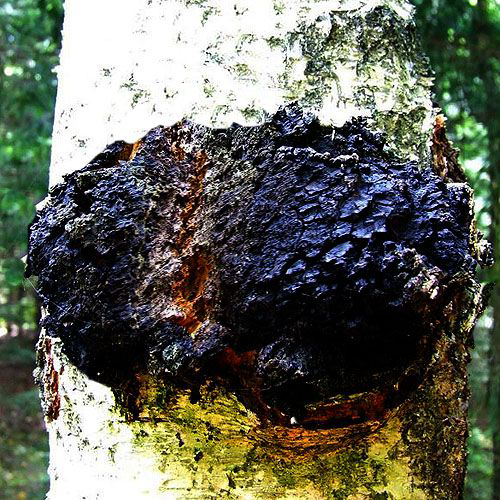 Chaga has traditionally been consumed as a hot tea, and the benefits associated with Chaga are based primarily (almost exclusively) on the cooked decoction or extract of Chaga. So mild cooking is considered appropriate for Chaga. Cooking produces metabolites that are believed to provide biological activity. Dragon Herbs Wild Siberian Chaga is a concentrated extract, produced by a state–of–the–art moderate–temperature full–spectrum extraction technology. Special highly sensitive technologies were used during the extraction process to assure full extraction of bioactive components. These processes are done in cGMP facilities. Each batch of product is tested and inspected at multiple points per FDA cGMP regulation. Both water and ethanol (alcohol) were used in the extraction, and as a result, all bioactive components are present, including polysaccharides, polyphenols, melanin, styrylpyrone compounds, etc.
Chaga has traditionally been consumed as a hot tea, and the benefits associated with Chaga are based primarily (almost exclusively) on the cooked decoction or extract of Chaga. So mild cooking is considered appropriate for Chaga. Cooking produces metabolites that are believed to provide biological activity. Dragon Herbs Wild Siberian Chaga is a concentrated extract, produced by a state–of–the–art moderate–temperature full–spectrum extraction technology. Special highly sensitive technologies were used during the extraction process to assure full extraction of bioactive components. These processes are done in cGMP facilities. Each batch of product is tested and inspected at multiple points per FDA cGMP regulation. Both water and ethanol (alcohol) were used in the extraction, and as a result, all bioactive components are present, including polysaccharides, polyphenols, melanin, styrylpyrone compounds, etc.
Ethanol and water extraction has been determined to extract virtually all of the major active constituents of Chaga. The ethanol (alcohol) extract is characterized by the predominant presence of lanostane–type triterpenoids and hispidin analogues. The water extract is characterized by polysaccharides and phenolic compounds. The ethanol and water extracts, both independently and together, revealed “remarkable potential for scavenging” the tested radicals (antioxidant activities here are indicated as capacities for scavenging superoxide anion, DPPH and hydroxyl radicals), while extracts made with synthetic solvents did not show this activity. Polyphenols are the major contributors for quenching free radicals.
Based on a history of safety and efficacy as a tonic, and upon epidemiological evidence that Chaga is very safe and free from side effects, Chaga may be consumed as a tonic herb over a long period of time (indefinitely) in moderate amounts.


